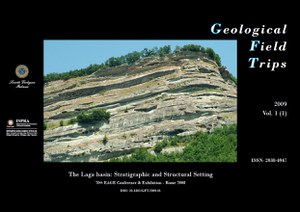The Laga basin: Stratigraphic and Structural Setting
70th EAGE Conference & Exhibition - Rome 2008
We present here the guidebook of the field trip n. 2 of the 70th EAGE Conference & Exhibition, that was held in Rome in 2008. The focus of the 3-days field trip is upon the structural and stratigraphic setting of the Messinian Laga basin, one of the most studied syn-orogenic basins of Apennines. Due to the period of its geological evolution, it represents a link between the internal, Lower Miocene fold-and-thrust-belt of the Apennines in the west and the external and more recent part of the chain buried below a thick pile of syn-orogenic, Plio-Pleistocene clastic deposits, in the east. The first day is devoted to introduce the geology of the central Italy, and in particular to the depositional, paleogeographic, stratigraphic, and structural setting of the Laga basin. During the second day, the stratigraphic architecture of the Laga turbidite deposits is analyzed through some key outcrops, where is possible to see the main sedimentological features of the different depositional environments. The geometric setting of the Laga deposits with respect to the growing anticlines, the regional monocline and the Gran Sasso thrust is also shown. Moving southward, the third day attendees is given a tour following a section across the Gran Sasso thrust, which includes: i) the Pliocene deposits that post-dated the main deformation of this regional thrust; ii) the relationships between the contractional structure and the younger extensional normal faults.
DOI 10.3301/GFT.2009.01

